講演者
Filter by:
Warren Anderson, PhD, Scientist III, Immunology, Inceptor Bio

Dr. Warren Anderson is an expert in cellular engineering and immunology, who has studied T cell biology throughout his scientific career. He received his PhD and post doctoral training at the University of Washington where he researched the use of gene editing platforms to interrogate genetic variants associated with autoimmunity. Currently, Dr. Anderson is a Senior Scientist with Inceptor Bio, leading molecular biology efforts with Inceptor's research and development team and developing multiple cell therapy programs intended for the treatment of solid tumors, the first of which is now entering clinical trial. Prior to his graduate studies, Dr. Anderson was a member of the US National Rowing Team, representing Team USA in multiple international events and was an alternate of the 2008 Olympic Team.
- Breakthroughs in Cell Therapy
Francesca Barone, PhD, CSO, Candel Therapeutics

Dr. Francesca Barone serves as Chief Scientific Officer at Candel Therapeutics. She oversees scientific discovery, the development of our novel viral oncolytic immunotherapies and our biomarker strategy across our broad clinical portfolio. Dr. Barone previously served as Vice President and Head of Experimental Medicine at Flagship Pioneering’s Kintai Therapeutics, now Senda Biosciences. She has previously designed experimental medicine clinical trials to support rigorous decision-making across various programs and indications. Before joining the industry, Dr. Barone held the academic position of Reader in Translational Rheumatology and Academic Director of Business Engagement for the College of Medical and Dental Sciences at the University of Birmingham. While there, she was also the Director of the laboratories for Immuno-phenotyping in the Institute of Translational Medicine. Dr. Barone earned her M.D. and completed a specialization in Rheumatology from the University of Rome, Sapienza, with merit and her Ph.D. from King’s College London.
- Breakthroughs in Cell Therapy
Andrew Bayliffe, PhD, CSO, Marengo Therapeutics
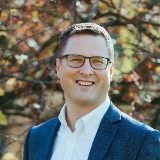
Andrew Bayliffe, CSO of Marengo Therapeutics, has 25 years of leadership experience in the biopharmaceutical industry, with expertise in the discovery and development of both small molecule and antibody therapeutics across a broad range of disease areas. At GlaxoSmithKline Pharmaceuticals, Andrew held senior discovery and development leadership roles in the US and UK and worked on a range of antibody projects including early anti-CD3 antibodies, TCR-based therapeutics, and other immune cell targeted approaches across immunology, respiratory, and oncology therapy areas. Andrew is also a venture partner at ATP (Apple Tree Partners) and an honorary professor at the Wolfson Institute of Experimental Medicine at Queens College in Belfast. He completed his undergraduate and PhD studies in pharmacology, physiology, and molecular biology at Manchester University and Leeds University in the UK.
- Autoimmunity
Leonardo J. Borras, PhD, CSO, CDR Life
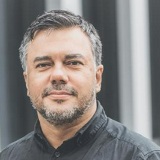
Leonardo is Chief Scientific Officer and co-founder at CDR-Life. He has spent the last 18 years working with breakthrough antibody-based therapeutics and is the inventor of brolucizumab (Beovu®), a next-generation anti-VEGF treatment for wet AMD, recently launched by Novartis. Before joining CDR-Life, Leonardo led global research teams for the discovery and pre-clinical development of antibody fragments and multispecifics at the Novartis Institutes for BioMedical Research (NIBR).
- Autoimmunity
William Bracamonte, PhD, MD, Clinical Fellow, Rheumatology, Yale
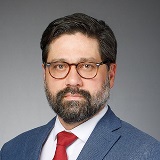
William Bracamonte Baran, MD PhD, is a physician scientist born in Venezuela. Earned his MD degree with honors from the Central University of Venezuela in 2004. After two years of practice in rural and underserved areas, he pursued an Internal Medicine residency at the Caracas University Hospital, with special emphasis in Rheumatology and autoimmunity. Then, he started a professor tenure in the Central University of Venezuela with appointment in the Department of Physiology, focusing on biophysics research, and clinical practice in the Department of Internal Medicine, focusing on diagnostic medicine and autoimmunity. In 2011 he moved to the USA to pursue a PhD in Immunology at the University of Wisconsin - Madison. His doctoral research led to discovery of mechanisms of allo-tolerance mediated by exosomes. He then obtained a post-doctoral position at Johns Hopkins University, where carried out translational research in the field of cardiac autoimmunity and transplant immunology. Once there, he made significant findings in the cardiac immunology field, mainly regarding properties of cardiac resident innate lymphoid cells, immunomodulatory role of cardiac endothelial cells via PDL1, amongst others. Aside of clinical and research experience, Dr. Bracamonte has developed extensive academic, teaching and mentoring activities and is reviewer of several peer-review indexed scientific journals. His work has been recognized by the American Heart Association, the American Autoimmune Related Disease Association, World Transplant Congress, amongst others, and produced multiple publications in recognized journals such PNAS and Circulation-Heart Failure. Aiming to continue a physician scientist career in the USA, he moved to Texas to complete a second Internal Medicine residency at Texas Tech University. Then he established a successful Internal Medicine practice at Midland Memorial Hospital, Texas. Dr. Bracamonte entered the Rheumatology Fellowship Program at Yale University. He recently joined the Division of Rheumatology at the University of Wisconsin.
- Autoimmunity
Carter Caldwell, MBA, Co-Investment Program Director, University of Pennsylvania
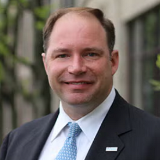
Carter leads Penn Medicine's investments in the cell therapy, gene therapy, mRNA, lipid nanoparticle, and connected health sectors. Utilizing multiple decades of experience as both an entrepreneur and an investor, he sources investment opportunities, manages relationships with co-investors, completes due diligence, and supports the governance of the funded companies. He was previously a Managing Director with Cross Atlantic Capital Partners, a venture capital firm with 4 funds and over $500 million under management. Carter holds an MBA from Columbia University and a BA in Philosophy, Politics and Economics from the University of Pennsylvania.
- Bi & Multispecific Engineering
- Breakthroughs in Cell Therapy
Nikki Cerniuk, Conference Producer, Cambridge Healthtech Institute
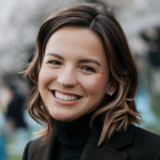
Nikki Cerniuk has a background in T cell therapy research. She enjoyed the science, but wanted to lend herself to broader applications that offered more opportunities for collaboration. She joined Cambridge Heathtech Institute as a Conference Producer in 2022. Her love of continuous learning, science, and communication proved her to be a excellent complement to the role. Nikki graduated summa cum laude from the University of South Florida with a degree in Cell and Molecular Biology.
- Autoimmunity
- Bi & Multispecific Engineering
- Breakthroughs in Cell Therapy
- Translating Multispecific Success
Karen Chagin, MD, Senior Vice President, Early Stage Development, Adaptimmune
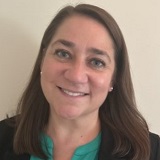
Karen joined Adaptimmune in September 2023 as the Senior Vice President of Early Stage Development and is responsible for overseeing the early stage pipeline activities from pre-IND and IND activities through Phase 1 clinical trials. Prior to Adaptimmune, Karen served as Chief Medical Officer at Tmunity. She led and was accountable for the development strategy, planning, and execution of Tmunity’s CAR T cell therapies in multiple solid tumor indications. Subsequently, she became the Head of Kite Philadelphia following Kite’s acquisition of Tmunity. From 2015 to 2019, Karen served as Adaptimmune’s Vice President of Clinical Development and was the clinical lead for the afami-cel and lete-cel programs. Prior to joining Adaptimmune in 2015, she served as a Scientific Director in Oncology Early Development at Janssen leading development activities for Phase 1 assets. Karen began her career in the pharmaceutical industry in 2009 at GSK and served as a Safety Development leader before transitioning to clinical development. As a Medical Director for Promacta®/Revolade®, she was responsible for the development and execution of multiple Phase 2 and 3 clinical trials. In her roles in safety and clinical development, Karen led and contributed to the registration of several products and indications globally. Dr. Chagin holds a BA from the University of Pennsylvania and an MD from Temple University School of Medicine. She performed her residency at Children’s Memorial Hospital in Chicago and her fellowship in pediatric hematology and oncology at The Children’s Hospital of Philadelphia.
- Bi & Multispecific Engineering
- Breakthroughs in Cell Therapy
Chewei Anderson Chang, PhD, Senior Scientist II, Oncology Discovery Research, AbbVie
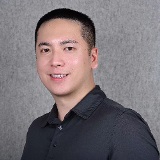
Chewei (Anderson) Chang, Ph.D., is a Senior Scientist II in Oncology Discovery Research at AbbVie. Dr. Chang focuses on the research and development of novel antibody-drug conjugates (ADCs) for cancer treatment. He contributed to the preclinical development of ABBV-319, facilitating its translation from bench to first-in-human (FIH) study. Dr. Chang led the biological characterization to optimize the development candidate and to elucidate the mechanisms of action of ABBV-319. Dr. Chang received his Ph.D. in Medical Biophysics from the University of Toronto, where his research centered on resistance mechanisms to HER2-targeted therapy in HER2+ breast cancer.
- Antibody-Drug Conjugates
Eric Chang, PhD, Associate Director, Intellectual Property, Xencor
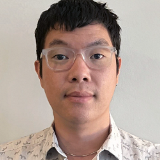
Eric Chang has 10 years of experience in IP law in the life science industry, predominantly in-house with a focus on antibodies and other large molecules. He is Associate Director, Intellectual Property at Xencor in Pasadena, CA, a biotech company engineering and developing antibody and cytokine therapeutics to treat patients with cancer and autoimmune disorders. In this role, Eric works closely with company stakeholders and inventors on patent portfolio development, prosecution management, transaction and licensing, and IP risks and opportunity assessment. He holds a PhD in Biotechnology from the University of Manchester.
- Translating Multispecific Success
Elaine C. Chen, PhD, Scientist II, Translational Biology & Discovery, Rondo Therapeutics

Elaine Chen is a Senior Scientist at Rondo Therapeutics, a biopharmaceutical company focused on developing innovative bispecific antibodies for solid tumor treatment. With expertise in discovery and translational biology, she has contributed to antibody therapeutics across oncology, immunology, and virology. At Rondo, Elaine led antibody discovery efforts and currently plays a key role in the translational biology team, advancing the company’s first molecule toward the clinic. Elaine earned her PhD at Vanderbilt University in the lab of Dr. James E. Crowe, where she studied the human B-cell repertoire across multiple infectious diseases from survivors of infections. Using both experimental and computational approaches, she leveraged paired and bulk sequencing datasets to gain actionable insights into antibody repertoires and inform lead optimization.
- Bi & Multispecific Engineering
Katherine L. Cook, PhD, Associate Professor, Cancer Biology, Wake Forest University
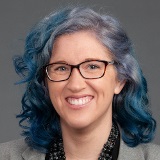
Dr. Cook received her Bachelor of Science degree in Biochemistry from the State University of New York at Oswego and her Ph.D. in Molecular Medicine from Wake Forest University School of Medicine (WFUSM). In June 2015 after a postdoctoral fellowship at Georgetown University, Dr. Cook accepted an Assistant Professor position in the Department of Surgery at WFUSM. Dr. Cook was promoted to an Associate Professor with tenure July 2021. Dr. Cook’s research program investigates molecular mechanisms of obesity-mediated breast cancer and dietary interactions influencing therapeutic responsiveness. Current research interests are focused on the impact of the microbiome on modulating inflammation, metabolic syndrome, and breast cancer risk. Dr. Cook has several ongoing clinical trials and partnerships to explore drug-bug interactions and the impact of therapy on the gut microbiota and associations with metabolite-processing and inflammation. She is currently funded in part by research grants from the National Institutes of Health, the Department of Defense Breast Cancer Research Program, The V Foundation, and the MetaVIVOR Foundation.
- Innate Immunity
Genevieve Desjardins, PhD, Principal Scientist, Mutispecific Therapeutic Antibodies, Zymeworks
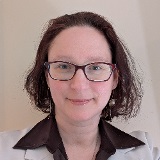
Genevieve Desjardins is a Principal Scientist in Protein Engineering at Zymeworks Inc., where she plays a pivotal role in the development of novel multispecific antibody-based therapeutics for various cancers and autoimmune conditions. Since joining in 2015, she has contributed to the establishment of numerous antibody engineering platforms resulting in several patents and publications. More recently, she has been involved in early-stage multispecific T cell engager therapeutic programs for solid tumors and hematological malignancies, as well as with the clinical-stage MSLN-targeting bispecific antibody ZW171 and the recently approved Ziihera®. Genevieve is a dedicated scientist committed to finding the optimal antibody geometry for each research program as well as integrating artificial intelligence models to reduce drug development time and cost. She received her Ph.D. in Biochemistry from the University of British Columbia and has a master’s in Biochemistry from the Université de Montréal in Canada.
- Bi & Multispecific Engineering
David J. DiLillo, PhD, Senior Director, Regeneron Pharmaceuticals
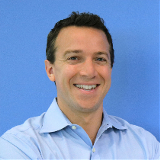
David DiLillo is a Senior Director in the Immuno-Oncology department at Regeneron Pharmaceuticals in New York, where he leads a team developing novel immunotherapies to treat cancer. His team is responsible for target discovery and the preclinical development of immune cell-engaging multi-specific antibodies to treat liquid and solid tumors. His team also develops cell-based therapies and works to understand detailed mechanisms-of-action of immunotherapies in order to advance next-generation therapeutics. Dr. DiLillo holds a PhD in Immunology from Duke University, where he studied non-classical B cell effector functions, and he completed his postdoctoral studies in Fc-receptor biology at the Rockefeller University.
- Translating Multispecific Success
Rakesh Dixit, PhD, DABT, President & Founder, Bionavigen Oncology, LLC and Regio Biosciences
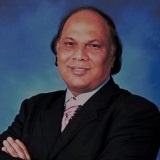
Rakesh Dixit is an accomplished executive, inventor, and scientist with over 35 years of success with top biotechnology and pharmaceutical companies, including Merck, Johnson & Johnson, and Medimmune - AstraZeneca. Currently, he is President and CSO of Regio Biosciences and Bionavigen, LLC. He is a Board Member of Regio Biosciences and a key member of multiple scientific advisory boards. Rakesh is also a chief adviser and consultant for more than 20 companies worldwide. His biopharmaceutical peers selected Rakesh as one of the 100 Most Inspiring People in the Pharmaceutical Industry by PharmaVOICE in 2015. Rakesh received the Most Prestigious Award of Long-Standing Contribution to ADCs by World ADC (Hanson-Wade), 2020. From 2006 to 2019, Rakesh was a Global Vice President of the Biologics R&D at Medimmune - AstraZeneca. Rakesh has unique expertise in developing biologics (e.g., monoclonal antibodies, bispecific biologics, antibody-drug conjugates, fusion proteins, peptides, gene and cell therapies, etc.) and small-molecule biopharmaceuticals. His areas of expertise include discovery, early and late preclinical development, safety assessment, DMPK, and translational sciences. Dr. Dixit conducted extensive graduate and post-graduate training in Pharmacology/Toxicology–Biochemistry with both Indian and USA institutions (e.g., Case Western Reserve University, Medical College of Ohio, University of Nebraska) and is a Diplomate and Board Certified in Toxicology from the American Board of Toxicology, Inc. since 1992.
- Antibody-Drug Conjugates
- Bi & Multispecific Engineering
- Breakthroughs in Cell Therapy
Martin Felices, Assistant Professor, Medicine, Hematology & Oncology, University of Minnesota, Twin Cities
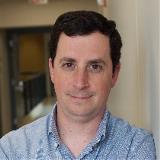
Dr. Felices received his Ph.D. in immunology from UMASS Medical School in 2008, where his research focused on innate and adaptive immune subsets. He then pursued an industry postdoctoral fellowship at Novartis Institutes for BioMedical Research, in Cambridge, MA, in the Developmental and Molecular Pathways group where he studied signaling pathways involved in liver injury and tumorigenesis. In 2011 he joined the University of Minnesota as a T32 postdoctoral fellow in the division of Hematology, Oncology and Transplantation, focusing his research on Natural Killer (NK) cell biology, prior to becoming an assistant professor. Dr. Felices’ group focuses on methodologies to improve NK cell immunotherapy, with a particular focus on cytokine signaling and development NK specific biologics. In recent years Dr. Felices has been dedicating most of his effort on a Tri-specific Killer Engager (TriKE) platform to target NK cells to tumors while providing a cytokine signal.
- Bi & Multispecific Engineering
Yang Feng, PhD, Biologist, Mouse Cancer Genetics Program, NIH NCI
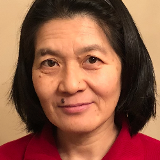
Research Biologist, St. Croix Lab, Mouse Cancer Genetics Program, National Cancer Institute Specializing in human antibody library construction, phage library screening, recombinant antibody engineering, drug discovery and development, protein chemistry and cell-based assays.
- Antibody-Drug Conjugates
Kanishka Fernando, PhD, Research Fellow, Translational Tumor Engineering, National University of Singapore
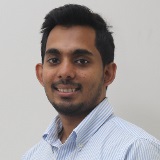
Kanishka Fernando is a Research Fellow at the Translational Tumor Engineering (TTE) Laboratory at the National University of Singapore (NUS). He holds a Ph.D. in Biomedical Engineering from NUS, specializing in the development of ex vivo tumor models. His research focuses on prolonged tumor expant models that facilitate a deeper understanding of the mechanism of action in immuno-oncology drugs, contributing to advancements in cancer therapeutics. Kanishka earned his Bachelor of Engineering with First-Class Honours in Mechanical Engineering with Management from the University of Liverpool and subsequently completed his Master of Science in Biomaterials at the University of Manchester, graduating top of his class. Beyond academia, he has several years of industry experience in developing healthcare solutions and commercializing medical technologies. His expertise bridges the gap between fundamental research and practical applications, driving innovation in translational cancer research.
- Translating Multispecific Success
Marc A. Gavin, PhD, Senior Research Fellow & Head, Immunology, InduPro
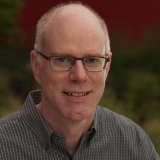
Marc is an immunologist with a long-standing interest in B and T cell repertoire development and tolerance. He pursued his graduate work in the lab of Michael Bevan at the University of Washington and postdoc with Alexander Rudensky, where he discovered essential features of mouse and human Treg development and function. He then took a position at Amgen, where he developed an IL-2 mutein Efavaleukin alfa for Treg enrichment to treat autoimmunity. After Amgen, he continued research in Treg-mediated therapy at the Benaroya Research Institute, where he investigated tolerizing protocols combining Treg enrichment with antigen-specific immunotherapy. He then served as Sr. Director of Immunology at Omeros, where he led research on GPCR-mediated modulation of T cell phenotype and function in anti-tumor responses. At InduPro, Marc is directing Immunology strategy, leveraging bispecific antibodies to manipulate immune responses to treat autoimmunity and cancer.
- Autoimmunity
Marvin Gee, PhD, Co-Founder & Vice President, Target Discovery, 3T Biosciences
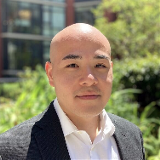
Dr. Gee received his B.S. degree in Biology at the California Institute of Technology in 2013, where he published and patented work engineering T cell receptors for adoptive T cell therapy in the laboratory of David Baltimore. Following that, he received his Ph.D. in Immunology with an additional core focus in Computational Immunology at Stanford University in the laboratory of K. Christopher Garcia in 2017, publishing his main work on novel technology to identify the specificities of T cell receptors for application in oncology. He completed further work on characterizing the structural basis of T cell receptor recognition of immunological targets and T cell receptor cross-reactivity. Dr. Gee has had prior work experience at the National Cancer Institute, where his primary focuses were in immunology, structural biology, protein engineering, systems biology, bioinformatics, and algorithms for the application of therapeutic- and early- discovery in immuno-oncology. He is currently VP, Target Discovery at 3T Biosciences since co-founding the company in 2017.
- Bi & Multispecific Engineering
Zinaida Good, PhD, Assistant Professor, Department of Medicine, Stanford University
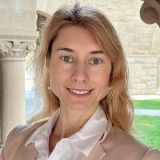
Zinaida Good, Ph.D., is an Assistant Professor of Medicine in the Division of Immunology and Rheumatology and the Center for Biomedical Informatics Research at the Stanford University School of Medicine and the Director of the Cancer Cell Therapy Data Hub at the Stanford Center for Cancer Cell Therapy. Her research program focuses on understanding and enhancing engineered T cell immunotherapies for cancer and immune-mediated diseases through innovative computational approaches and systems immunology. During her postdoctoral training with Drs. Crystal Mackall and Sylvia Plevritis, Dr. Good performed fate mapping studies to identify features of optimal CAR T cells in large B cell lymphoma (LBCL) and diffuse midline glioma (DMG), and discovered the role of CAR T regulatory cells in resistance to CD19-CAR in LBCL. She earned her Ph.D. in Computational & Systems Immunology from Stanford University, where she trained with Drs. Garry Nolan and Sean Bendall and developed methods to build and leverage lymphocyte differentiation trajectories in health and cancer. Dr. Good's background in experimental immunology and oncology combines two years of experience in Discovery Oncology at Genentech with B.S. and M.S. degrees in Microbiology & Immunology from the University of British Columbia, where she investigated mechanisms of T cell memory with Dr. Michael Gold. Dr. Good’s work includes 4 first-author papers (Nature Medicine 2018 & 2022, Nature Biotechnology 2019, Trends in Immunology 2019), 17 co-authored papers (including Nature 2019, 2022, 2024, Science 2021, Nature Methods 2016, 2022, and NEJM 2024), and a multinational patent. Her research is supported by the NIH Pathway to Independence Award, Parker Institute for Cancer Immunotherapy Bridge Fellowship, American Cancer Society Institutional Research Grant, and Parker Institute for Cancer Immunotherapy Innovation Challenge Grant. Dr. Good has been named an Arthur & Sandra Irving Cancer Immunology Fellow in 2022 and an AACR-Woman in Cancer Research Scholar in 2024.
- Innate Immunity
David W. Granger, PhD, Vice President, R&D, NovalGen Ltd.
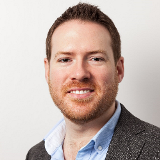
Dr David Granger has over 15 years’ experience in drug discovery, working on both small molecule and antibody therapeutic programmes. Originally trained as a pharmacologist he joined global pharmaceutical company GSK following a PhD and post-doctoral research position at Imperial College. At GSK David led bispecific antibody programmes utilising different discovery platforms and overseeing various collaborations. In 2017, he joined bispecific antibody biotechnology company Crescendo Biologics as a Senior Scientist, leading therapeutic immuno-oncology programmes, and developing and embedding a bispecific discovery platform into the workflow. David joined NovalGen in 2019 where he leads the R&D team with activities spanning from target identification and antibody discovery through to translational research and IND-enabling studies.
- Translating Multispecific Success
Malay Haldar, PhD, Associate Professor, Pathology, University of Pennsylvania
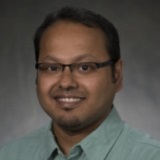
I am a physician-scientist cross trained in cancer biology, immunology, and clinical pathology. After completing my medical degree, I pursued PhD thesis research in Human Genetics at the University of Utah followed by clinical residency in Pathology and postdoctoral training in immunology, both at the Washington University in St. Louis. As a practicing pathologist, I focus on molecular diagnostics – primarily in oncology. My research laboratory studies mononuclear phagocytes (MPs), which include monocytes, dendritic cells (DC), and macrophages. MPs perform diverse functions - from controlling immune responses to maintaining tissue homeostasis. My laboratory studies the developmental and molecular basis of MPs diversity and their roles in tissue homeostasis and disease states. In the context of human diseases, I am particularly interested in solid tumors where MPs play critical role in initiating and regulating anti-tumor immune responses Amongst other things, my laboratory is investigating the bi-directional cross talk between tumor microenvironment and MPs that underlie immunoregulatory functions of MPs. An overarching goal is to apply these insights for the next generation of cancer immunotherapy.
- Innate Immunity
Ryan A. Heiser, PhD, Director Immuno-Oncology, Pfizer
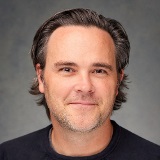
Ryan Heiser is a cellular immunologist currently serving as the Director of ADC Biology and Immunology at Pfizer Oncology in Bothell, Washington. His team is engaged in programs encompassing ADC and IO therapeutic discovery, clinical evaluation, and reverse translation. The team places significant emphasis on exploring the convergence of ADC activity and immune cell function to promote rational therapeutic combinations in cancer treatment. Before his tenure at Pfizer, Ryan was the Director of Adaptive Immunology at Seagen, where he directed discovery programs focused on IO bispecifics and immune cell-targeted ADCs. Ryan holds a PhD in Immunology from the University of Colorado School of Medicine.
- Antibody-Drug Conjugates
Pamela M. Holland, PhD, Senior Vice President Biology, Biology, InduPro
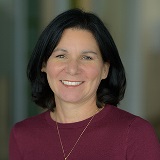
Pamela Holland, PhD, is SVP of Biology at InduPro, overseeing pipeline development. Prior to InduPro, she was SVP of Research at Alpine Immune Sciences, overseeing oncology and autoimmunity programs. Prior to Alpine, she was VP, Cancer Biology at Surface Oncology in Cambridge MA, playing key roles in developing the early Surface pipeline and establishing a multi-program strategic partnership with Novartis. Prior to Surface, Dr. Holland held roles of increasing responsibility in oncology research at Amgen, working on TNF-receptor superfamily members for oncology and cancer immunotherapy. Dr. Holland obtained her PhD from the University of Washington/Fred Hutchinson Cancer Research Center followed by a post-doctoral position at Immunex. Prior to graduate school, she was a key contributor to the development of PCR applications and TaqMan™at Cetus Corporation. She is a co-inventor on all TaqMan patents and was the lead author on the first publication describing TaqMan in 1991.
- Translating Multispecific Success
David James, Resident Physician, Ric Scalzo Institute for Botanical Research, Naturopathic Specialists LLC
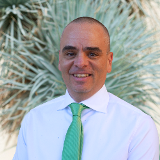
Dave earned a Bachelor of Science in Psychology from the University of Bridgeport in December 2009 where he was captain of the NCAA Cross Country Team. Following graduation, he was selected to represent Team USA at three World Championships. He is a two-time 100-mile United States Track and Field Association National Champion. In April 2021, Dave returned to pursue a Doctorate of Naturopathic Medicine from Sonoran University in Tempe, AZ. He is currently involved in multiple projects at the Ric Scalzo Institute for Botanical Research at Sonoran University and presented HSV1 research at AANP in 2023. He also presented a poster on Lymphedema and Naturopathic Approaches to Lymphatic Malignancies to OncANP in 2024. He plans to complete a postgraduate naturopathic medical residency and to pursue a career in chronic pain management and naturopathic oncology. His goal is to sit for the FABNO exam through OncANP. Dave has shadowed FABNOs from coast to coast. In his spare time, Dave enjoys spending time outdoors hiking with his dog and spouse. He is a NWB and Team RWB volunteer. Dave is a graduate of the ND program and as a student was enrolled in the Regenerative Medicine Honors Program at the Neil Riordan Center for Regenerative Medicine where he was conducting an observation study on the efficacy of PRP and Prolotherapy for the treatment of chronic pain. He was president of his cohort in 2021 during the pandemic and helped work with the administration on the COVID task force. Dave has been a tutor & TA for many classes. Currently, he is the incoming PGY1 resident physician at a private practice in Scottsdale Arizona, Naturopathic Specialists, LLC where he will work towards his FABNO. He was president of his cohort in 2021 during the pandemic and helped work with the administration on the COVID task force. Dave has been a tutor & TA for many classes including Anatomy, Physiology, Biochemistry, Microbiology, Physical Medicine, & Immunology where he lectures to first year medical students on Immunology CD4 MCH class 2 and CD8 T cytotoxic cells MCH class 1, HLA Matching, T cell receptors, perforins, granzymes, the complement cascade, Natural Killer Cells, Antigen Presenting Cells, Th0 cells, Tfh cells, TH17, TH22, cytokines, CD28, basophils, dendritic cells, cross-presentation, central tolerance, VDJ recombination, bone marrow, antigens, mucous associate lymph tissues, long lived plasma cells, and CAR- T therapy. His interests are in the space of refractory and relapsed blood cancers and plans to research bispecifics along with patient care and a career in higher education. He can be reached via email at davejames@listenandcare.com ; d.james@sonoran.edu ; and for public speaking and private coaching for long distance runners at rundavejames@yahoo.com. His IG & X are @rundavejames.
- Breakthroughs in Cell Therapy
Peter Joyce, PhD, CEO & Co Founder, Greywolf Therapeutics
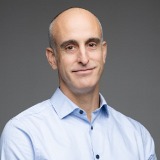
Peter has over 16 years of experience in biomedical research leading drug discovery projects in immuno-oncology, rare genetic diseases and neurodegeneration. Alongside his role leading Greywolf, he is also Co-founder of biotech companies Pathios Therapeutics and 35Bio. In his previous role at Vertex Pharmaceuticals, he led drug discovery projects, had responsibility for leading a number of target identification teams that led to multiple novel drug discovery projects and was involved in delivering clinical drug candidates. He also pioneered the development of complex neurological assays suitable for assessing the functional impact of optimized compounds. Prior to Vertex, Peter was an MRC Research Fellow investigating the pathophysiology and underlying mechanisms of neurodegeneration and publishing multiple first and co-author publications. Peter holds a PhD in Biochemistry and Molecular Genetics from the University of Bristol and a BSc in Biochemistry.
- Autoimmunity
Shilpa Keerthivasan, PhD, Associate Director, Immunology, Bristol Myers Squibb
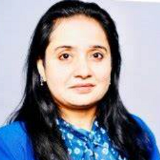
I have 20+ years of experience in immunology, drug discovery, and translational medicine at leading pharmaceutical companies such as Roche and Bristol Myers Squibb. I have contributed multiple immunology programs including Atezolizumab, TGFb inhibitor, mechanism of resistance to IO, T cell engager platforms, ADC, scRNA seq and TCRseq. My expertise in precision medicine approaches, including transcriptomics, NGS and scRNA seq has been instrumental in assessing peripheral biomarkers and optimizing therapeutic strategies. Expertise in leading and contributing to oncology and nononcology programs at BMS and Roche, serving as a subject matter expert in advanced cancer immunology programs and assessing mechanism of resistance in clinical trials, leading or contributing to scientific engagement via publications, attracting and developing world-class talent focused on demonstrating and developing new applications of immunotherapy products, providing mentorship and guidance to a multi-disciplinary team of scientists and computational biologists and overseeing cross-functional teams working on key deliverables.
- Innate Immunity
Shameer Khader, PhD, Executive Director, Global Head of Data Science, Data Engineering and Computational Biology, Sanofi
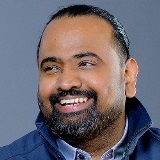
Dr. Shameer Khader is a senior director of advanced analytics, data science, and bioinformatics at AstraZeneca, a global, science-led biopharmaceuticals company. At AstraZeneca, he leads a global team of data scientists, biomedical scientists, statisticians, and software engineers. He oversees a portfolio of projects in oncology and biopharma to accelerate drug discovery and development using biomedical and clinical big data using machine intelligence approaches. He has published more than 120+ peer-reviewed research papers, patents, and conference publications in pharma informatics, healthcare data science, bioinformatics, drug discovery, and precision medicine. Various national and international media, business, biotechnology, and scientific publishers have featured his work. His work was featured in media outlets including Forbes, Fast Company, Bloomberg News, Times of India, The Indian Express, HealthIT Analytics, ScienceDaily, The Sun, MedScape, Medical Express, MedPage Today, The Economic Times, Cardiology Today, NewsWise, BioPortfolio, Science Xpress, Business Standard, eCancer News, PhysOrg, UroToday, etc. His work was also featured in worldwide publications and includes blogs by MedGadget, UNESCO, International Society for Computational Biology, American Chemical Society, American Heart Association, and the NEJM Journal Watch.
- Antibody-Drug Conjugates
- Innate Immunity
Olivier Kitten, PhD, Founder & CEO, Affilogic
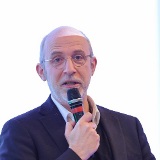
Olivier is founder and CEO of Affilogic, specialized in the development of alternative non-antibody ligands. Olivier was trained as an engineer at Ecole Centrale Paris, then as a researcher in gene transfer at Université de Rennes I. Before creating the company, he held various R&D positions in the pharmaceutical industry (Rhone-Poulenc Rorer, then Aventis Pharma Gencell in gene therapy), as laboratory head in a genetic testing biotech start-up (Atlangene Applications).
- Antibody-Drug Conjugates
Louai Labanieh, PhD, Research Scientist, Bioengineering, Stanford University
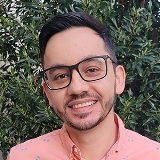
Dr. Labanieh is an Assistant Professor in the Icahn Genomics Institute (IGI) and the Precision Immunology Institute (PrIISM) at Mount Sinai School of Medicine. As a bioengineer with expertise in synthetic biology, immunoengineering, and T-cell biology, Dr. Labanieh is developing next-generation high performance platform technologies to address the most pressing challenges for cell therapies for cancer. He developed SNIP-CAR, a drug-regulated CAR platform that enhances the safety and efficacy of CAR-T cells. The findings from his work credentialed this platform as best-in-class and laid the foundational preclinical studies to support a Phase I clinical trial of the SNIP CAR platform in relapsed/refractory solid cancers at Stanford. He has also developed technologies for drug-regulated control over cytokine signaling in engineered T-cells as well as a platform for purification of multi-engineered, sophisticated cell therapies. He has worked collaboratively to create logic-gated T-cells, injectable hydrogels for delivering cell therapies and cytokines, and technologies for imaging cell therapies in vivo. Dr. Labanieh is a co-inventor of 13 technologies spanning the fields of cell therapy, diagnostics, and high-throughput drug discovery. These technologies have been licensed to five biotechnology companies, including CARGO Therapeutics, a publicly traded and clinical stage CAR-T startup that Dr. Labanieh co-founded. The Labanieh Lab focuses on the development of biotechnologies that allow for precision genetic engineering and control of cell functions in vivo, with a particular focus on platforms that enhance the efficacy and safety of cell and gene therapies for cancer and other diseases.
- Breakthroughs in Cell Therapy
Sarah Lensch, PhD, Senior Scientist, Arsenal Bio
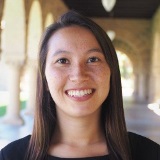
Sarah Lensch is a synthetic biologist with a background in mammalian epigenetic gene regulation and experience with high-throughput screening. Currently a Senior Scientist at ArsenalBio, Sarah is working on advancing therapeutic products through innovative CAR-T cell engineering. She earned her Ph.D. in Bioengineering from Stanford University from Dr. Lacra Bintu’s lab, and holds a Bachelor’s degree in Biology from UC Santa Barbara.
- Breakthroughs in Cell Therapy
Hongtao Lu, PhD, CSO & Co-Founder, Discovery, Elpiscience Biopharma Ltd.
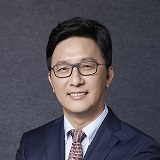
Dr. Hongtao Lu is co-founder and Chief Scientific Officer of Elpiscience Biopharma, a biotech company focusing on innovative medicine for immuno-oncology. Trained as an immunologist and an industry veteran for more than 20 years, Dr. Lu was a senior executive with Zai Lab and GlaxoSmithKline before Elpiscience. Dr. Lu holds a PhD in Regulatory Biology and conducted post-doctoral fellowship at Yale under the guidance of Dr. Richard Flavell.
- Translating Multispecific Success
Margery Ma, PhD, Principal Consultant, NonClinical Regulatory Affairs, Eliquent Life Sciences
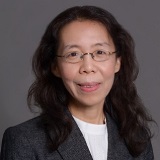
Dr. Ma is trained in cellular immunology, with over 20 years of combined experience in pharmaceutical R&D and regulatory affairs within consulting firms. Her extensive background provides her with deep technical expertise and strategic insight, enabling her to guide drug development from preclinical stages to the clinic. She specializes in offering nonclinical regulatory support for a wide range of drug products and has successfully led interactions with health authorities. Dr. Ma is dedicated to helping clients navigate complex challenges and achieve meaningful advancements in public health.
- Antibody-Drug Conjugates
- Bi & Multispecific Engineering
- Breakthroughs in Cell Therapy
Utpal Majumder, PhD, Senior Scientist, R&D, Eisai
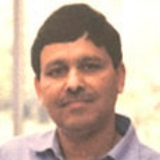
Utpal Majumder, is a principal scientist working in Eisai for 15 years. During his tenure in Eisai, he was involved in various discovery projects including peptide drug conjugate (PDC) and antibody drug conjugate (ADC) based drug discovery projects which are currently under clinical evaluations. Dr. Majumder has co-authored several patents and journal articles that have highlighted the successes and some of the challenges associated with PDC- and ADC-based drug developments.
- Antibody-Drug Conjugates
Amina Metidji, PhD, Senior Scientist, AstraZeneca
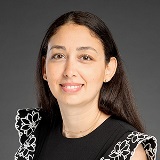
Amina Metidji is a Senior Scientist in the Department of Biologic Engineering at AstraZeneca, where she brings over ten years of expertise in immuno-oncology research to drive innovative solutions. She earned her Ph.D. from the University of Pierre and Marie Curie, in collaboration with The National Institute of Health, focusing on immune system dynamics. During her postdoctoral research at The Francis Crick Institute in London, Amina examined how dietary influences affect intestinal receptors and disease progression, particularly in the context of colon cancer. At St. Jude Children's Research Hospital, she furthered her work by advancing therapeutic strategies for myelodysplastic syndromes. Amina's impactful research has been published in high-impact journals, contributing significantly to the scientific community.
- Bi & Multispecific Engineering
- Breakthroughs in Cell Therapy
- Translating Multispecific Success
Jonathan D. Moore, PhD, Founding CEO & CSO, Epitopea
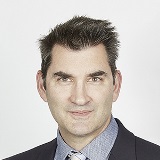
Jon Moore was founding CEO of Epitopea and now serves as CSO and is an Operating Partner at Advent Life Sciences. Trained in molecular and cell biology including a postdoctoral spell with Tim Hunt, Jon has spent 20 years in industry in cancer dug discovery with Vernalis, evangelising gene editing as a target ID/validation tool with Horizon Discovery and as co-founder and CEO of remyelination focussed start up, Pheno Therapeutics.
- Breakthroughs in Cell Therapy
Ian Nessler, PhD, Senior Scientist II, Quantitative, Translational, and ADME Sciences, AbbVie
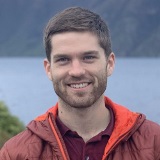
Dr. Ian Nessler is a Senior Scientist in Quantitative, Translational and ADME Sciences at AbbVie. In this role, he develops mathematical models to assess drug properties that promote effective engagement of the intended biological target. Dr. Nessler received his Ph.D. in 2022 from the University of Michigan where he was mentored by Dr. Greg Thurber in applying fundamental biotransport principles to understand and design antibody drug conjugates for solid tumors.
- Antibody-Drug Conjugates
Tatiana Novobrantseva, PhD, CSO, NextPoint Therapeutics
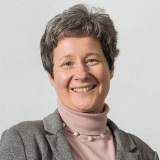
Tatiana Novobrantseva is the Chief Scientific Officer at NextPoint Therapeutics. Most recently she served as the CSO of Immuno-oncology at Moderna. In the prior role, she co-founded Verseau Therapeutics and served as CSO, guiding programs from target identification to an advanced novel therapeutics pipeline, staying as an advisor to the company. Tatiana is currently serving on several Scientific Advisory Boards. Tatiana also consulted on drug development programs for various companies throughout the years. At Jounce, she directed programs on immune system reactivation against cancer. Tatiana held roles at Alnylam and Biogen, uncovering the critical role of B cells in fibrosis, advancing siRNA delivery, and leading a dendritic cell cancer vaccine initiative. She earned her PhD in B cell immunology from the University of Cologne in Germany in the Laboratory of Klaus Rajewsky. She holds a Diploma in Engineering in Physics and a Master’s degree in Molecular Biology from the Moscow Institute of Physics and Technology.
- Antibody-Drug Conjugates
- Breakthroughs in Cell Therapy
- Innate Immunity
Raphael G. Ognar, Co-Founder & President & CEO, NKILT Therapeutics
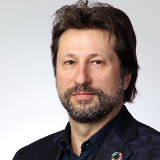
Pharma/Biotech senior executive with over 26 years of commercial, drug development, product lifecycle and strategy expertise. His multiple achievements through global and country leading roles (Novartis Oncoloy, Celgene, BMS), and his proven leadership skills came from an extensive 21-year experience in Oncology/Hematology. For the last decade, he successfully increased his focus on Immuno-Oncology and Cell Therapy technologies, leading to the creation of NKILT Therapeutics, Inc., in 2021. After his time in Corporate Pharma/Biotech, and prior to founding NKILT Therapeutics, Inc., he created his executive consulting company, ANIM8 LLC, to deliver strategy and operations support to early-stage biotech and RWE/DHS companies. Raphaël owns a Masters and a D.E.A. of Physiology and Neurosciences from University of Bordeaux I&II, and an MBA in Strategic Marketing and Enterprise Management from I.A.E of Tours University. Besides fighting cancer, his passions are vintage wines, playing music in his family band, playing and chilling with his rescued pitbulls, pushing himself rock climbing, and traveling the world with family and friends.
- Breakthroughs in Cell Therapy
Yuanwang Pan, PhD, Senior Scientist, R&D, Amgen
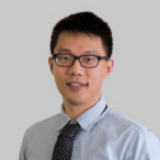
Dr. Yuanwang Pan is a Senior Scientist in the Department of Oncology at Amgen, where he currently leads a research team focused on new target discovery and developing T cell engager molecules for the treatment of solid tumors. He received his PhD in Cell and Developmental Biology from Rutgers University, and he performed a postdoctoral fellowship investigating novel cancer therapeutics at the NYU Langone Medical Center.
- Translating Multispecific Success
Orna Rabinovich Ernst, PhD, Senior Scientist, R&D, AstraZeneca
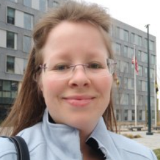
Orna Rabinovich Ernst is a Senior Scientist in the Department of Biologic Engineering at AstraZeneca, developing antibody-based programs for autoimmunity and cancer immune therapies. Dr. Ernst completed her Ph.D. at Tel-Aviv University studying immune response to infection. She then pursued postdoctoral training at the National Institute of Allergy and Infectious Diseases (NIAID), NIH, where she focused on systems biology and immune target recognition. She moved on to investigate the immune response to the malaria parasite at Johns Hopkins University. In her current role at AstraZeneca, she employs high-throughput, high-content imaging techniques to advance the drug discovery process for autoimmune diseases and cancer. Her on-going work involves the development of three-dimensional in-vitro models that simulate the tumor microenvironment, a critical step in understanding complex biological systems, which paves the way for novel solid tumor treatment discovery.
- Bi & Multispecific Engineering
Ana R Ribeiro, PhD, Associate Director, Immunocore
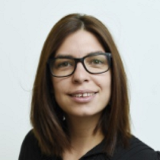
Dr. Ribeiro is a Research Associate Director at Immunocore, leading a team responsible for the generation of preclinical efficacy and safety data from early stages of drug screening up to candidate nomination and follow up IND/CTA-enabling studies. She has deep knowledge in Immunology and T cell biology, and over 14 years of experience in Research, (8 of them in biotech at Immunocore), including pipeline programme leadership. Dr. Ribeiro holds a PhD in Biomedical Sciences from University of Porto, Portugal, studying T cell and thymus development.
- Translating Multispecific Success
Vladimir Roudko, PhD, Director, Advanced Translational Programs, AstraZeneca Pharmaceuticals
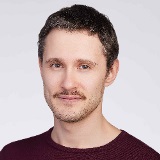
Dr. Vladimir Roudko is a computational immunologist and molecular biologist whose research lies at the intersection of high-throughput biological data integration, interpretation, and novel technology development. With a strong clinical focus, his work aims to identify novel immune biomarkers for disease progression and therapy response in patients with cancer and inflammatory conditions. Dr. Roudko earned his doctorate in France, where he investigated the mechanisms governing eukaryotic RNA stability and decay. He then pursued research in the United States at Weill Cornell Medicine and Mount Sinai, where as a faculty member he explored the molecular principles of human tumor immunology applying computational approaches. Currently as a director at Astrazeneca translational medicine department he helps to bring advanced innovative methodologies for biomarker discovery in the oncology space.
- Innate Immunity
Siddhartha Roychoudhury, PhD, Asset Leader, Immuno-Oncology Development, Astellas Pharma
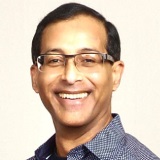
Siddhartha Roychoudhury (Sid) obtained his PhD in Microbiology & Immunology from the University of Illinois Chicago and conducted his post-doctoral training at Eli Lilly & Company. Sid has 25+ years of drug discovery and development experience, spanning molecular target identification through Phase 3 clinical development. Over the past 12+ years, Sid has been leading multiple global Asset or Program Strategy Teams with single-point accountability for cross-functional, end-to-end strategy, and execution to develop small molecules and various modalities of biologics (monoclonal antibodies, bispecifics, bifunctionals, alternative scaffolds) in immuno-oncology and inflammatory diseases in multiple biopharma companies, including Astellas, Gilead, Amgen, and Janssen. Key programs among them include tarlatamab (DLL3-targeted Bispecific T cell Engager) for which Sid led the Early-to-Late development transition, Commitment to Registrational Studies, and the initiation of DeLLphi-301 trial, which enabled its accelerated approval for the treatment of extensive-stage small cell lung cancer (ES-SCLC). Currently at Astellas, Sid is leading two potentially first-in-class assets in clinical development, including ASP2138, a CLDN18.2-targeting T cell engager to treat gastrointestinal malignancies.
- Bi & Multispecific Engineering
Marco Ruella, MD, Assistant Professor of Medicine, Scientific Director, Lymphoma Program, Division of Hematology and Oncology and Center for Cellular Immunotherapies, University of Pennsylvania
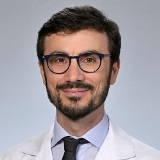
Dr. Marco Ruella obtained his medical degree with high honors and completed his specialization in clinical hematology at the University of Torino, Italy. He was attending physician at the Hematology and Cell Therapy Division of the Mauriziano Hospital and was an Instructor at the Biotechnology School at the University of Torino. From late 2012, he was a Post-doctoral Fellow, and then an Instructor at the University of Pennsylvania in the Center for Cellular immunotherapies (Drs. June and Gill). From 2017 to 2018 he served as Associate Director of Dr. June’s laboratory. In 2018, Dr. Ruella was appointed Assistant Professor of Medicine in the Division of Hematology/Oncology and the Center for Cellular Immunotherapies and Scientific Director of the Lymphoma Program at the Hospital of the University of Pennsylvania. Dr. Ruella was awarded many awards and honors, including the inaugural SITC EMD-Serono Cancer Immunotherapy Clinical Fellowship (2014), the AACR-BMS Oncology Fellowship in Clinical Cancer Research (2015), the ASH Scholar Award (2016), a NIH K99-R00 award (2017), the “Paola Campese” Award Leukemia Research (2017), the Cancer Support Community Award (2018), the 2018 ASH Joanne Levy, MD, Memorial Award for Outstanding Achievement, the Gilead Sciences Research Scholar in Hematology/Oncology and the Gabrielle’s Angel Foundation Award (2020), and the Leukemia and Lymphoma Society, Translational Research Program (2021). Dr. Ruella is the author of numerous peer-reviewed publications on targeted immunotherapies for hematological cancers and is an inventor in several patents on CART therapy and the Scientific Founder of viTToria biotherapeutics.
- Autoimmunity
Stefano Sammicheli, PhD, Director, Ichnos Sciences
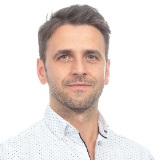
Stefano Sammicheli obtained a PhD in Immunology from the Karolinska Institute in Stockholm, and trained as postdoctoral fellow at the San Raffaele Scientific Institute and the Francis Crick Institute where he joined the Group of Prof. Caetano Reis e Sousa to work on cancer immunity. In 2018 he joined Roche Innovation Center Zurich as a Senior Scientist developing antibody-based programs for cancer immune therapies. Currently he is the Director of Innate Cell Engagers at Ichnos Sciences, and he is leading several therapeutic antibody discovery programs, one of which has reached FDA approval and Phase I trial.
- Bi & Multispecific Engineering
Yi Shi, PhD, Associate Professor, Protein Engineering, Icahn School of Medicine at Mount Sinai
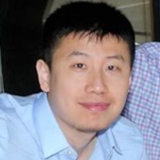
Dr. Yi Shi is an Associate Professor and Director of the Center for Protein Engineering and Therapeutics at the Icahn School of Medicine at Mount Sinai. His lab develops cutting-edge technologies in protein and antibody engineering, with a focus on camelid VHH antibodies, commonly known as nanobodies. Dr. Shi’s team has pioneered proteomics and machine learning–based platforms for the high-throughput discovery of nanobody repertoires. These approaches enable the identification of thousands of high-affinity nanobodies targeting diverse epitopes on disease-associated antigens. His lab applies these technologies to tackle key challenges in cancer biology, virology, and diabetes, with the goal of advancing both fundamental understanding and the development of next-generation therapeutics. Dr. Shi received his PhD from Baylor College of Medicine in 2011.
- Bi & Multispecific Engineering
Clinton Smith, PhD, Research Associate, Biomedical Engineering, University of Florida
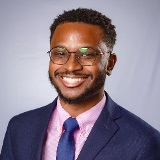
Clinton T. Smith is a third-year Biomedical Engineering Ph.D. candidate at the University of Florida. He works under Dr. Jamal Lewis in the Immunomodulatory Biomaterials Laboratory (IMBL) where his thesis entails engineering a hybrid microbe-biomaterial drug delivery platform. Clinton earned his B.S. in Biomedical Engineering from the Georgia Institute of Technology where he was first introduced to immunology and biomaterials. In Dr. Krish Roy's lab, he assisted in developing a novel synthetic nanoparticle that mimicked the function of monoclonal antibodies towards treating severe musculoskeletal trauma and investigated the effects of nanoparticle-based adjuvants to enhance the immune response to COVID-19 vaccines. Since then, Clinton has authored several research articles in publications such as Journal of Controlled Release, Advanced Science, and Advanced Drug Delivery Reviews. Clinton has also received numerous recognitions and awards such as the NSF Graduate Research Fellowship, NIH Basic Microbiology and Infectious Disease T32 Fellowship, and the 2024 Invention of the Year at the University of Florida. After his Ph.D., he plans to start a research group developing biomaterial-based approaches to engineer cell therapies.
- Autoimmunity
David Sommerhalder, MD, Clinical Investigator, Oncology, NEXT Oncology
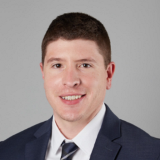
My name is David Sommerhalder and I am the director of clinical research for NEXT Oncology San Antonio. Most of my time is spent being a clinical investigator on Phase 1 oncology studies for solid tumors. I have been fortunate to be a principal investigator on over 50 trials and a sub-investigator on over 200 trials. I entered Phase 1 research with the goal of bringing new treatments to cancer patients quickly, and while doing this I have been inspired by patients' willingness to participate to help others as well as their families' support. I completed my residency and fellowship training at LSU Shreveport. I was born and raised in Texas. I have three wild children, including two-year-old identical twins.
- Bi & Multispecific Engineering
- Breakthroughs in Cell Therapy
Paul Y. Song, CEO & Chairman, NKGen Biotech
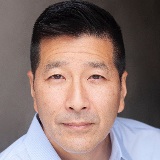
Paul Y. Song, MD is Chairman and CEO of NKGen Biotech. He is the Co-Founder/former CEO of Fuse Biotherapeutics where he still serves as a senior advisor. He is also on the board of PeproMeme Bio. Dr. Song’s last clinical role was Asst. Professor at the Samuel Oschin Cancer Center at Cedars Sinai Medical Center. Dr. Song graduated with honors from the University of Chicago and received his M.D. degree from George Washington University. He completed his residency in radiation oncology at the University of Chicago where he served as Chief Resident and did a brachytherapy fellowship at the Institute Gustave Roussy in Villejuif, France. He was also awarded an ASTRO research fellowship in 1995 for his research in radiation inducible gene therapy.
- Innate Immunity
Jo B.L. Tan, PhD, Senior Vice President, R&D, Parvus Therapeutics
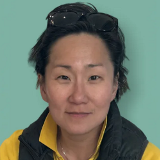
Joanne brings more than 15 years of industry experience building R&D teams and advancing drug candidates through development and clinical proof-of-concept studies. Prior to Parvus, Joanne served as Head of Translational Sciences at Nkarta and Sana Biotechnology and Head of Clinical Biomarker at Schrodinger. At Arcus Biosciences, Joanne served in a series of leadership roles developing biomarker strategies and advancing the pre-clinical pipeline. Joanne earned her BSc with honors and PhD in Immunology and Developmental Biology from Trinity College at the University of Toronto.
- Autoimmunity
Kristin V. Tarbell, PhD, Associate Director, Discovery, Amgen
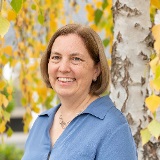
Kristin earned her Doctorate in Immunology from Stanford and completed her post-doctoral work at Rockefeller University with Dr. Ralph Steinman. She was then a principal investigator at the National Institute of Diabetes and Digestive and Kidney Diseases (NIDDK), during which time she was awarded the Presidential Early Career Award for Scientists and Engineers (PECASE). Her research focused on antigen presentation and Tregs in autoimmune diabetes. Kristin is now an investigator in Amgen Oncology Research where she her focuses on immuno-oncology and how modulation of the tumor microenvironment can contribute to successful cancer immunity. She has led pre-clinical therapeutic programs utilizing diverse modalities, including antibody, T cell engager, cell therapy and small molecule.
- Innate Immunity
Craig Thalhauser, PhD, Senior Director, Clinical Pharmacology & Quantitative Sciences, Genmab US Inc
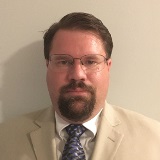
Dr. Craig Thalhauser has spent his career using mathematical modeling to understand interactions in the immune system across different disease areas. After completing an M.S. in Cellular and Molecular Physiology at Tufts University, a PhD in Mathematics at Arizona State University, and postdoctoral training at UC Irvine, he began his industry career at Immunetrics, Inc, a biosimulation company focused on designing and using mathematical models of acute and chronic inflammation. He then moved to Bristol-Myers Squibb, leading mechanistic modeling efforts (also known as Quantitative Systems Pharmacology, QSP) in the autoimmune disease therapeutic area. He moved to Genmab in early 2020 to establish and grow a QSP presence there across a wide range of therapeutic modalities.
- Innate Immunity
Mireille Vankemmelbeke, PhD, Principal Scientist, Scancell, Ltd.
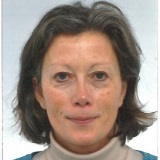
Mireille Vankemmelbeke obtained her PhD from the University of Sheffield (UK), after graduating (BPharm) from the University of Ghent, Belgium. She completed several postdoctoral positions at the Universities of Sheffield and Nottingham, before joining Professor Durrant’s cancer immunotherapy lab, where she focused on generating cancer-targeting anti-glycan antibodies and Fc-engineering to enhance their functionality. Mireille joined Scancell Ltd. in 2018, where, as Principal Scientist, she currently oversees the GlyMab and AvidiMab platforms.
- Antibody-Drug Conjugates
Annelise Vuidepot, PhD, Senior Vice President and CTO, Immunocore
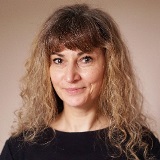
Annelise joined Immunocore (Avidex) when it was founded in 2000 and has played a lead role in the design and engineering of the ImmTAX platform, a novel class of TCR-based bispecifics. She is currently leading Immunocore’s drug discovery pipeline and research to expand the ImmTAX technology further. Before joining Immunocore, Annelise was a postdoctoral researcher in the Biochemistry department at UCL. She gained her PhD in 1998 in Biophysics from the University of Paris.
- Autoimmunity
Ezgi Wood, PhD, Associate Director, QSP, Bristol Myers Squibb
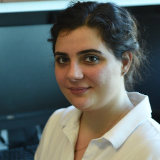
Ezgi Wood is an Associate Director in Quantitative Systems Pharmacology (QSP) at Bristol Myers Squibb. In her position, she develops and employs mechanistic mathematical models for supporting both preclinical and clinical drug development, with a current focus on antibody-drug conjugates. Prior to working at BMS, she was a postdoctoral researcher at UT Southwestern Medical Center. She received her PhD in Mathematics from Duke University.
- Antibody-Drug Conjugates
Jennifer Wu, PhD, Mary and Patrick Scanlan Professor, Urology and Immunology, Northwestern University
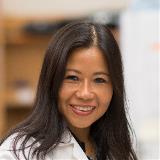
Dr. Wu’s research focuses on understanding how cancer cells disable the immune system with the ultimate goal of developing effective immunotherapy of cancer. Her work was the first to show that tumors shed NKG2D ligand sMIC to perturb the maintenance of tumor-killing NK cells and to facilitate tumor metastasis. Her research team has developed the novel multi-modal sMIC-targeting antibody that demonstrated remarkable efficacy in reducing tumor burden and eliminating metastasis as a single agent. The antibody will be entering clinical testing in Summer 2025. Dr. Wu’s group has been focused on understanding the impact of this pathway on NK cell, CD8 T cell, and macrophages in tumor microenvironment.
- Innate Immunity
Peng Wu, PhD, Professor, Chemical Physiology, Scripps Research Institute
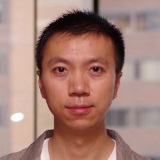
Peng Wu is a Professor in the Department of Molecular Medicine. Before joining the faculty at TSRI, Peng was an Associate Professor of Biochemistry and the Scientific Director of the Chemical Biology Core Facility at Albert Einstein College of Medicine, New York. The research in the Wu laboratory integrates synthetic chemistry with glycobiology to explore the cellular and molecular mechanisms that control immune responses toward cancer and human pathogens. His recent awards include: 2020 Horace S. Isbell Award, Division of Carbohydrate Chemistry, American Chemical Society, 2021 Horizon Prize (Robert Robinson Award in Synthetic Organic Chemistry), the Royal Society of Chemistry (with the teams of K. Barry Sharpless, Jeff Kelly, John Moses, Jianmei Lu, Dennis Wolan, Bruce Hammock and Han Zuilhof) and 2021 Glycobiology Significant Achievement Award, the Society for Glycobiology.
- Breakthroughs in Cell Therapy
Mark Yarmarkovich, PhD, Principal Investigator, Assistant Professor, NYU School of Medicine
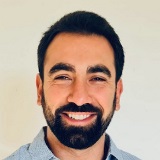
My work focuses on developing T cell immunotherapies for intractable cancers. I have experience at all stages of development, from target discovery, immune receptor engineering, preclinical and IND-enabling studies. I have developed methods for developing immunotherapies for low mutational solid tumors that I expect will apply across many tumor types. Our lead CAR candidate is slated to enter clinical trials in 2022/23. My expertise spans cancer biology, biotechnology, bioinformatics, and immunology. My PhD work at the University of Pennsylvania focused on developing strategies for developing immunotherapies in immunologically cold tumors and my previous work at Genentech involved antibody engineering for increased potency and specificity.
- Breakthroughs in Cell Therapy
Jiaquan Yu, PhD, Research Scientist, Massachusetts Institute of Technology
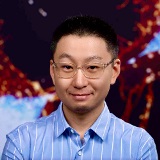
Jason Yu is a Convergence Scholar at the Koch Institute and as a senior postdoctoral associate at MIT. Mentored by Professor Scott Manalis, Jason investigates the influence of physical and chemical parameters on cellular responses, including T cell differentiation, microbiota antigen presentation, and tumor progression. With a PhD in Tissue Engineering and four years of postdoctoral experience in engineering physics at MIT, Jason specializes in the precise manipulation of the physical microenvironment of tissue culture to study the underlying mechanism. His interdisciplinary approach merges tissue engineering and physics to uncover novel insights into cell behavior and disease processes.
- Innate Immunity
Zhao Peng, PhD, Senior Scientist, Antibody Discovery & Engineering, AstraZeneca
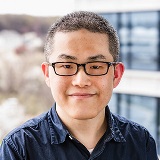
Dr. Zhao is a Senior Scientist from Protein Engineering and Novel Modalities team within the Biologics Engineering (BE) department at AstraZeneca (Gaithersburg site). He leads projects focused on multi-specific therapeutic antibodies across various therapeutic areas, including oncology and immunology. Prior to joining AstraZeneca in August 2022, Dr. Zhao conducted postdoctoral research at the University of Texas Health Science Center in Houston. There, he spearheaded projects focused on developing antibody therapeutics for Alzheimer's disease. He earned his Ph.D. in Pharmaceuticals and Pharmaceutical Chemistry from the University of Utah.
- Bi & Multispecific Engineering
Biao Zheng, PhD, CEO, BRL Medicine
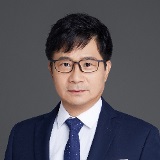
Dr. Biao Zheng graduated with a medical degree from Zhejiang University School of Medicine. He received his PhD in Immunology from King’s College, University of London. Dr. Zheng served at the faculty of University of Maryland School of Medicine and Duke University Medical Center. He was a tenured professor in the Department of Pathology and Immunology, Baylor College of Medicine. Dr. Zheng worked for GlaxoSmithKline R&D Center as the head of Immunological Discovery Sciences. He was a global vice president of the Immunology Therapeutic Area, Janssen Pharmaceuticals, and Johnson & Johnson Innovation Center, Asia Pacific, responsible for the innovative immunological drug pipeline in the region. Dr. Zheng is now the Chief Executive Officer at BRL Medicine. Dr. Zheng is an experienced physician scientist, drug hunter, and professor with a demonstrated history working both in academia and pharmaceutical industry. He has more than thirty years of experience in biomedical research and drug discovery. He has published extensively in world top journals including Cell, Nature, and Science. His major areas of research and development include autoimmune diseases, immuno-oncology, and novel vaccine development.
- Bi & Multispecific Engineering
- Breakthroughs in Cell Therapy
Nicholas A. Zorko, PhD, Assistant Professor, Hematology & Oncology & Transplant, University of Minnesota Twin Cities
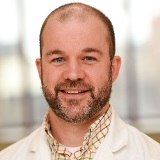
Nicholas Zorko is an Assistant Professor of Medicine at the University of Minnesota Masonic Cancer Center specializing in genitourinary oncology and cellular therapies. He treats a unique combination of patients consisting of both genitourinary oncology and bone marrow transplant/cellular therapy recipients. He completed his MD and PhD at The Ohio State University and his clinical residency and fellowship at the University of Minnesota. His translational laboratory focuses on the development of natural killer (NK) cell engager molecules and off-the-shelf, engineered NK cells to treat prostate cancer and other GU malignancies. He is a 2022 Prostate Cancer Foundation Young Investigator and the recipient of a United States Department of Defense Early Investigator Research Award. His clinical trial work includes several industry-sponsored Phase I immune engager and chimeric antigen receptor (CAR) T cell products to treat late-stage prostate cancers and other refractory solid tumors and a pending investigator-initiated NK cell engager trial.
- Translating Multispecific Success
Conference Programs
















